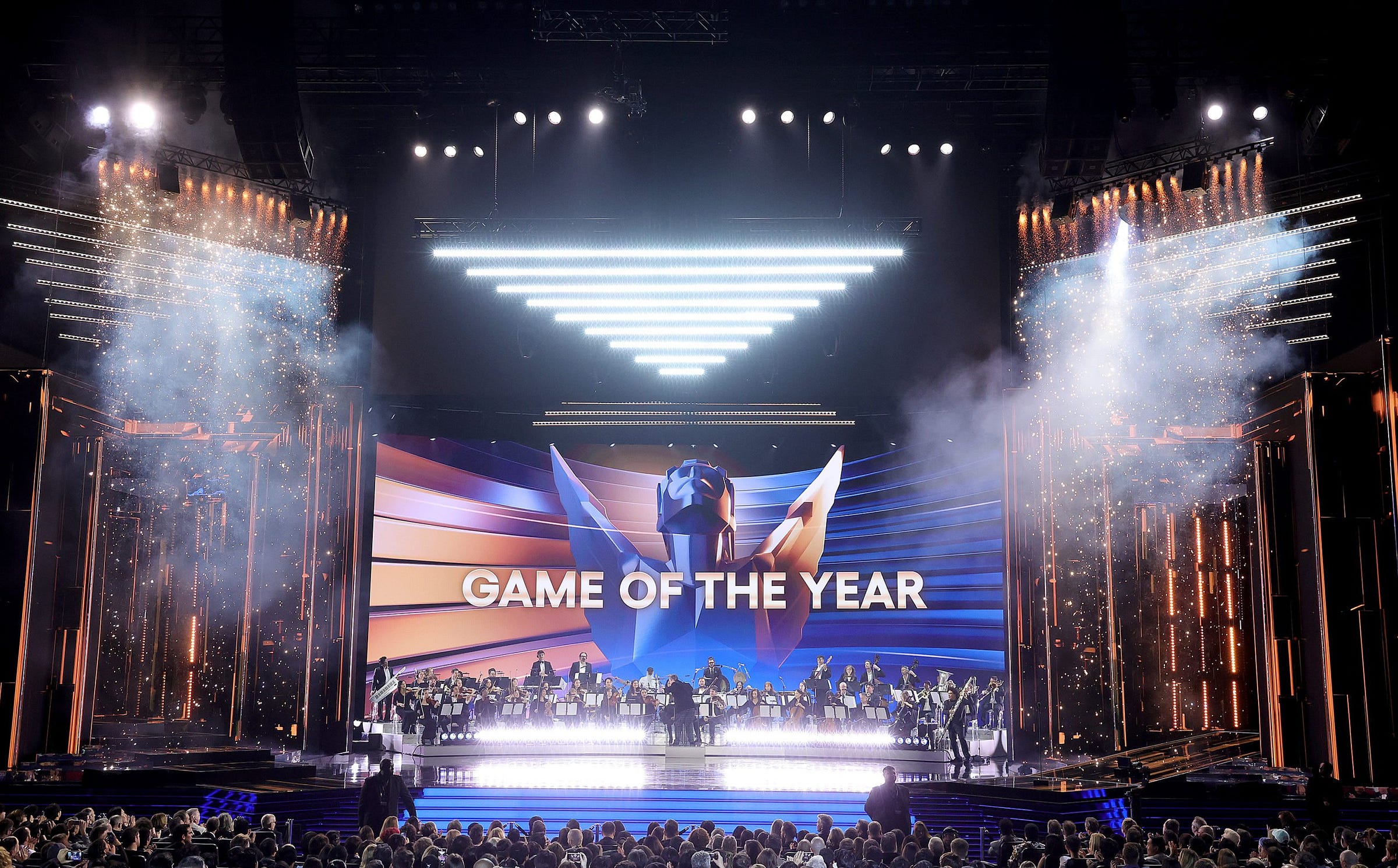Explainer: Does release timing really affect The Game Awards?
Turns out, recency bias is a slight factor for Game of The Year. But not in a way you'd expect it to be.
I’ve often wondered why October feels so bloody busy.
Every year, without fail, a cavalcade of major games are launched around late September and early October. They often smother one another; before you can finish one, another blockbuster is already out.
You could argue that it’s a fantastic launch window for the run-up to Christmas, with plenty of time to market them ahead of people buying presents. It makes sense.
But here’s a more cynical view: These games could be trying to leverage recency bias to win big at The Game Awards in December. They are judged late October into November. Quick primer: recency bias is where people give disproportionate weight to recent experiences in decision-making.
It’s a question that I think a lot of spectators of the event ask, but it never really gets answered. There’s a bit of added currency to it too, given release date for Grand Theft Auto 6—a sequel to one of the best-selling games of all time—has been moved yet again, from 24 May to 26 November 2026.
This will place it well outside the running for a Game Award next year, and may also make it difficult for the game to score the prize in 2027 too.
So I wanted to look at how release dates of major games affect the awards and if there’s a correlation. Never heard of The Game Awards before? Don’t worry, I have you covered with some additional background below.
Hold up, what are The Game Awards?
Launching in 2014, The Game Awards are an industry awards night run by former games journalist turned events industry entrepreneur Geoff Keighley.
Over the past decade it’s arguably become the main awards night of the games sector, with last year’s event amassing over 154 million viewers via global live-streaming. This year’s awards is being held on December 11.
Colloquially, it serves as the focal point for a myriad of other awards for the best game of the year. Many publications run their own awards. There’s also plenty of other industry accolades including the BAFTA Game Awards, The Golden Joystick Awards and the D.I.C.E. Awards.
But The Game Awards are the closest thing the gaming industry will get to its own version of the Grammys or The Academy Awards.
Perhaps the biggest difference is that the actual awards top and tail the stream, with many of them announced on the night without too much fanfare. Acceptance speeches are kept to a minimum. Viewers are arguably more tuned in for the trailers and launch announcements strewn throughout it. It’s like watching the Super Bowl for the ads.
How are they judged?
The broad strokes of how The Game Awards are judged are public, but some of the more intricate details aren’t as clear. Here’s what we do know:
First, a jury panel — which has grown over time to hold 100 media outlets and influencers globally — submits ballots to determine the nominees.
Then the same (or similar) group votes on the nominees to decide winners. This jury vote carries about 90% of the decision.
Meanwhile, the public can cast online votes (typically opening shortly after the nomination announcement in November). These votes constitute roughly 10% of the decision, and can tip the balance in some instances.
Behind the scenes, the exact mechanics for how each outlet tallies votes, how votes are verified and how ballots are processed remain largely undisclosed. Polygon has an excellent article on this if you are after more details.
So, are you more likely to win Game of The Year if you launch your game later in the year?
At a glance, no.
Looking at an analysis of the past 11 winners to date, slightly more games that received the top prize were actually released in Q2 (April, May, June) of their corresponding year.
But of course that doesn’t explain the glut of games that tend to launch around the September, October, November window. Looking at the total pool of Game of The Year finalists for each year actually paints a much more nuanced picture.
In this instance, there’s a clear trend between launching a major game towards the end of the year and making it into the pool of finalists for consideration — which is still an achievement in itself.
This suggests that there is some form of recency bias involved in the judging process; however, it ultimately doesn’t affect the decision around the winner.
Any interesting outliers?
Generally speaking, games that are launched in December or close to the awards don’t actually make it into consideration for the following year’s Game Awards.
One classic example of this is Marvel’s Midnight Suns, a strategy game that launched 2 December 2022, and despite some acclaim didn’t quite muster a nomination for Game of The Year or Best Role-Playing Game.
There’s one exception to this, however, for the Game of The Year finalists. Smash Bros Ultimate launched 7 December 2018, and it was nominated for Game of The Year in 2019. It’s currently the only game to buck the trend.
This is all interesting, but what’s your pick for Game of The Year this year?
My own recency bias is in play here, but I think Ghost of Yotei, an open-world revenge quest set in 17th century Japan, will likely win it.
I’m yet to review it for this newsletter, but after finishing the game it felt like a clear contender for the top prize, given the game’s excellent pacing, storytelling and artistic style.
I stand by my call earlier this year that Kingdom Come II: Deliverance is a clear contender. But while that was mechanically interesting and really fun to play, the whimsy and storytelling of role-playing darling Clair Obscura surpasses it. If not for Ghost of Yotei, I’d say it would win.
Nintendo is likely out of the race this year. Platformer Donkey Kong Bonanza is lacking a smidge of polish compared to other past Nintendo winners, and it’s also a new console exclusive. And while Mario Kart World is a phenomenal racer, it would be defying the odds to get the top prize.
What do you think of The Game Awards, and who do you think will win this year’s prize? Do release dates matter? Let me know in the comments.



